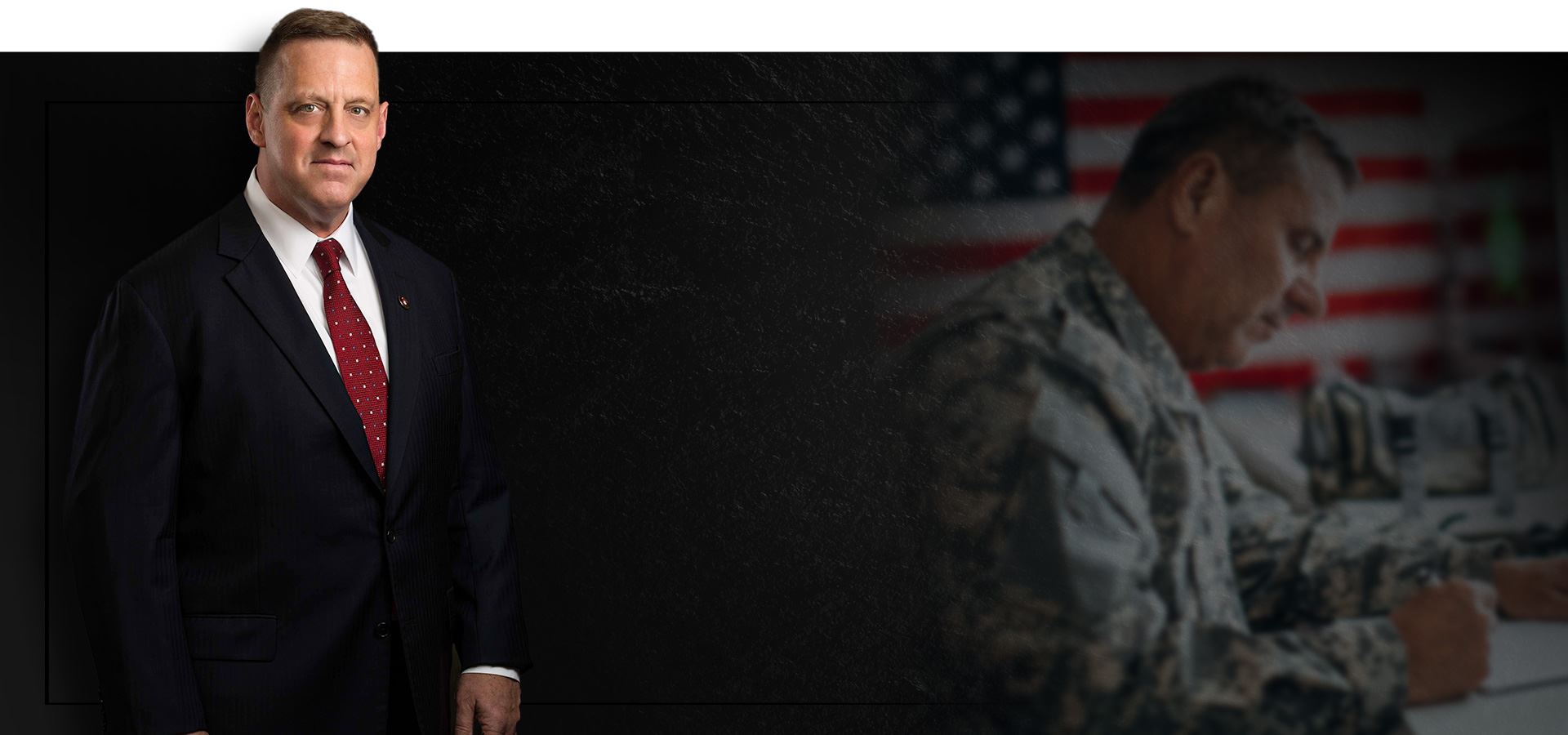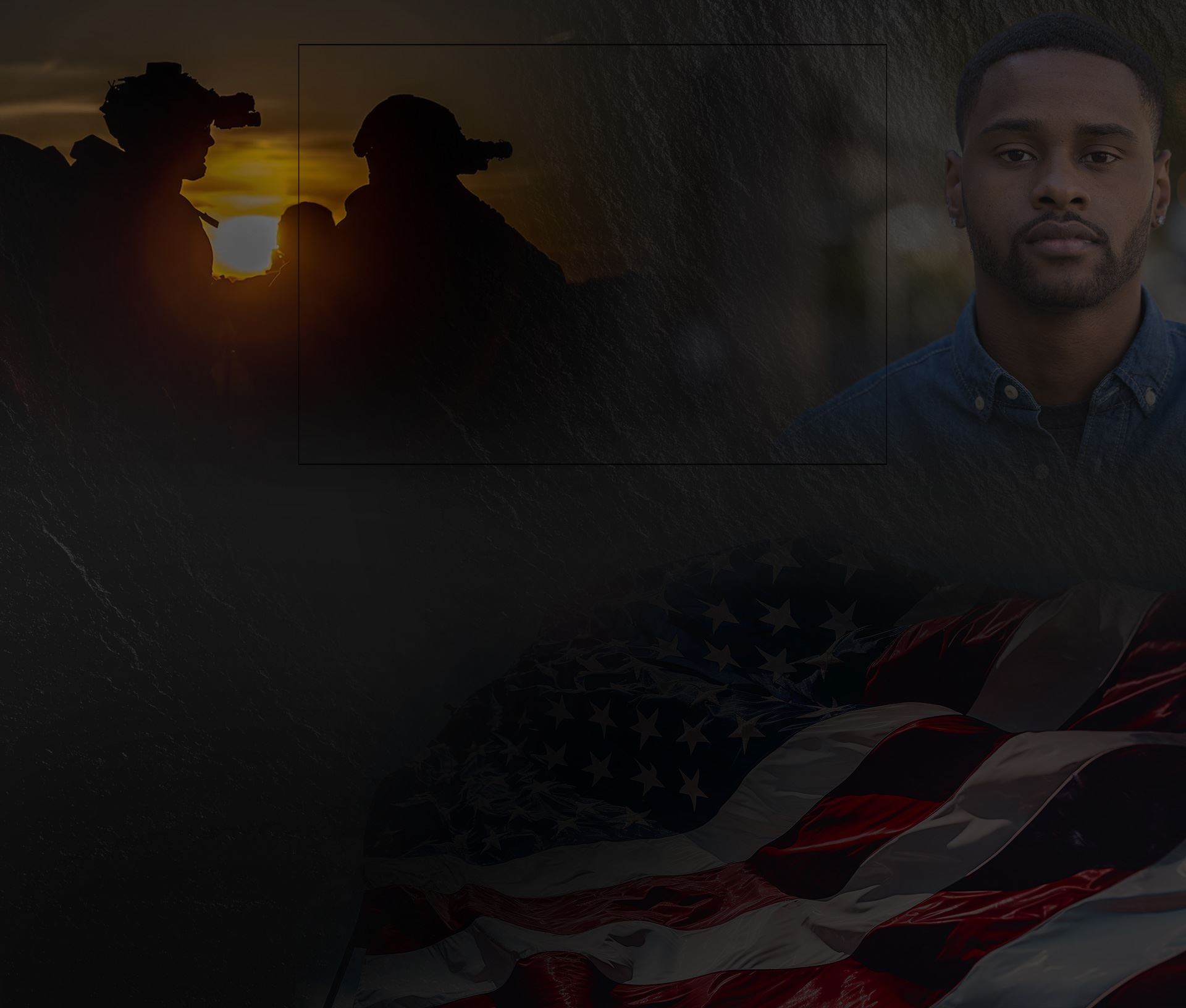
Military Insubordination Lawyer
Officer Assault Defense Attorney
Civilian military attorney Patrick J. McLain provides aggressive, experienced and dedicated defense to Soldiers, Sailors, Airmen and Marines worldwide who have been accused of insubordination. He is a former marine and experienced military insubordination attorney who understands the challenges that servicemen and servicewomen face when they have been accused of military offenses such as insubordination.
Insubordination: Legal Definition
Insubordination is a broad military offense. Under Article 91 of the Uniform Code of Military Justice (UCMJ), an officer or enlisted personnel can be charged with insubordination if he or she:
- Assaults, hits, or punches an officer, noncommissioned officer (NCO), or petty officer while they are performing his official duties;
- Intentionally disobeys a legal order from an officer; or
- Disrespects an officer verbally or physically while they are performing their official duties
In order to be convicted of insubordination, a defendant must have known that the person he or she struck, assaulted, willfully disobeyed or treated with contempt was a warrant, noncommissioned or petty officer. An experienced insubordination defense lawyer knows that these charges have many defenses.
Call (888) 606-3385 or contact us online today to schedule a consultation with our team.

WITH A CRIME?
Military Insubordination FAQs
What is military insubordination?
Military insubordination refers to the refusal of a service member to obey lawful orders issued by a superior officer. It is considered a serious offense under military law, as obedience to orders is fundamental to maintaining discipline, hierarchy, and effectiveness within armed forces. Insubordination can take many forms, such as open defiance, verbal refusal, or passive noncompliance, and it undermines the chain of command necessary for operational success.
What constitutes a "lawful order"?
A lawful order is an instruction given by a superior officer that is within the scope of their authority, is not illegal or unethical, and pertains to military duties. For example, orders related to combat operations, training, and administrative tasks typically fall into this category. However, orders that require a service member to commit an illegal act, such as violating international laws or committing war crimes, are not considered lawful, and a service member has a duty to disobey such orders.
What are the consequences of insubordination?
Consequences of insubordination vary depending on the severity of the offense and the circumstances. Minor cases may result in counseling or nonjudicial punishment (e.g., reduction in rank, loss of pay, or extra duties). More serious instances, such as outright refusal to follow orders in combat, can lead to court-martial proceedings and harsher penalties, including imprisonment, dishonorable discharge, or forfeiture of benefits. The impact of insubordination also extends beyond the individual, as it can harm unit cohesion and mission success.
What are some examples of insubordination in the military?
Examples of insubordination include:
- Verbal refusal: A soldier openly stating, "I will not follow that order."
- Failure to act: Deliberately ignoring an order to perform a task, such as failing to report for duty.
- Disrespecting a superior: Using abusive language or gestures toward an officer.
- Defiance in combat situations: Refusing to engage in an assigned mission or abandoning a post.
In historical cases, insubordination has sometimes occurred during protests against perceived injustices, such as unlawful orders or dangerous missions without adequate preparation. These situations often raise complex ethical and legal debates.
Are there defenses against charges of insubordination?
Yes, a service member can present defenses against charges of insubordination. Common defenses include:
- Order was unlawful: Demonstrating that the order violated military regulations or laws.
- Lack of clarity: Arguing that the order was ambiguous or misunderstood.
- Mental health issues: Showing that the individual was not mentally fit to comply due to stress, trauma, or illness.
- Situational context: Explaining extenuating circumstances, such as acting in a way that was necessary to preserve safety.
Legal counsel is typically provided in such cases to ensure fair evaluation and judgment.
How does military law address insubordination?
Military law, as codified in systems like the Uniform Code of Military Justice (UCMJ) in the United States, strictly governs acts of insubordination. Article 91 of the UCMJ specifically addresses offenses against superior officers, such as disrespect, assault, and willful disobedience. Military courts assess these violations on a case-by-case basis, taking into account factors like the rank of the individuals involved, the context of the situation, and the potential impact on military discipline.
Can insubordination ever be justified?
In certain cases, insubordination can be morally or legally justified, particularly if the order in question is unlawful or unethical. For instance, refusing to carry out an order to commit a war crime is not only justified but expected under military and international law. However, such decisions carry risks, as service members must later prove the illegality of the order to avoid punishment. Balancing personal ethics with military obligations is one of the most challenging aspects of service.
How does insubordination affect military operations?
Insubordination can significantly disrupt military operations by undermining the chain of command, decreasing morale, and creating confusion during critical missions. A single act of disobedience can ripple through a unit, leading to inefficiencies and delays. Conversely, addressing insubordination effectively can reinforce discipline and cohesion, ensuring that all members understand their responsibilities and the importance of following lawful orders.
WHY CHOOSE THE LAW OFFICE OF PATRICK J. MCLAIN?
-
Former Federal Prosecutor & Military Judge
-
Over 3,500 Cases Successfully Handled
-
Our Firm is Top-Rated & Award-Winning
-
Over Two Decades in the U.S. Marine Corps

Zealous Advocacy From an Experienced Military Defense Lawyer
Patrick J. McLain spent more than 30 years in active service for the Marine Corps. He also has more than 30 years of military law experience. He is a former federal prosecutor, former USMC defense attorney, and retired court-martial trial judge. You can trust him to be a zealous advocate for you.
To discuss your case in a confidential consultation with military law attorney Patrick J. McLain, please call us at (888) 606-3385 or e-mail us at our law office.
OUR CLIENTS SAY IT BEST
-
"Amazing lawyer who fights for you!"A tremendous lawyer in a time of need. After being accused of conduct unbecoming an officer for personal conduct while off duty, I hired Mr. McLain to help me through the process. He diligently worked behind the scenes to make sure my voice was being heard. Despite my inability to listen to his direction early on, Mr. Mclain was patient and continued to fight on my behalf. Mr. McLain helped me win at a board of inquiry with no other disciplinary action. A sincere man, who is dedicated to his clients. Would strongly recommend and is a great asset to military clients everywhere.- Former Client
-
"I highly recommend Brad Sauer and the entire team"I had an outstanding experience working with Brad Sauer. From start to finish, Brad was professional, knowledgeable, and incredibly dedicated to my case. He took the time to thoroughly explain my options, kept me informed throughout the process, and always made sure I felt supported. His expertise and attention to detail made a significant difference, and I couldn’t have asked for better representation. I highly recommend Brad Sauer and the entire team at the Law Office of Patrick J. McLain to anyone in need of top-tier legal assistance.- Anne
-
"He is a hard worker and will fight for you the moment you choose him to be on your team!"
My husband hired Patrick for his summary court martial and Patrick and his team were there every step of the way. They communicated everything they needed and were even there when either me or my husband had any questions. He is a hard worker and will fight for you the moment you choose him to be on your team!
- Angela -
"The best lawyer to defend military personnel."The Law Office of Patrick J. McLain helped me through the most difficult experience in my life. As a Marine Officer facing an upcoming board of inquiry for conduct issues, I was afraid of losing my career. Attorney McLain gave great legal advice through the process and reached out many times to see how I was doing. A great lawyer and better person, Mr. McLain helped me become successful in my board of inquiry and keep moving forward in my career. His military experience and personal qualities make him the best lawyer to defend military personnel.- Jonathan
-
"I won my military case due to his diligence, knowledge and experience in military law."
I cannot recommend Patrick highly enough. I won my military case due to his diligence, knowledge and experience in military law. Had I proceeded on my own, I would have lost, for the process was simply too complex. When working with Patrick, there was never a time when I felt left in the dark on my case, nor a time when his assessments and instructions were unclear. Should you be in any difficult circumstance, Patrick will work his tail off for you and keep you clearly informed on the status of your case. Again, I highly recommend the services of Patrick McLain.
- Dan C. -
"I was entirely impressed with mclain’s work on my case."
I called McLain when the military charged me with some B.S., McLain immediately jumped into action and made things happen in my favor. Don't do it alone … your military chain of command will try to make you think that your cooperation will help you, it will NOT. I was entirely impressed with McLain's work on my
- Chris C. -
"Amazing strength and integrity with the combination of experience, insight, and knowledge of military law."
I have found my lawyer Patrick McLain, to be honest, right to the point, consistently giving me realistic outcomes through the whole process of my case. He's definitely no nonsense, cut to the chase. As a client…I've never been left hanging; he makes sure all my correspondence is returned. He's got amazing strength and integrity with the combination of experience, insight, and knowledge of military law. He stands behind his words and expects the same in return. I say my blessings every day for him taking my case. With him as my attorney, I've achieved best possible outcomes.
- Gina F. -
"Thanks to him I am now able to get on with my life."
It took some time to make it happen, but it did just like Patrick said, he is a hard charging guy that can help you get what you deserve, Thanks to him I am now able to get on with my life.
- Chip
STAY UP TO DATE
-
 Understanding the Different Types of Court-Martials: Summary, Special, and General
Understanding the Different Types of Court-Martials: Summary, Special, and General -
 Military Appeals: Process and Tips for a Successful Appeal
Military Appeals: Process and Tips for a Successful Appeal -
 Navigating a Court-Martial: What to Expect and How to Prepare
Navigating a Court-Martial: What to Expect and How to Prepare

.2409270742160.jpg)
.2409270735437.jpg)



